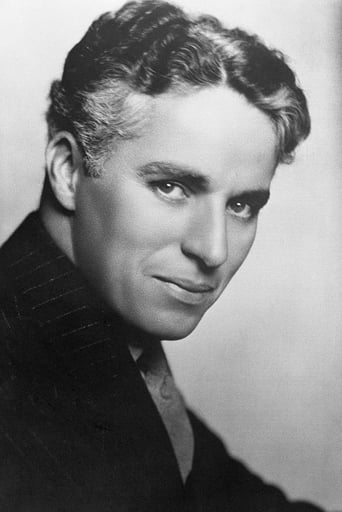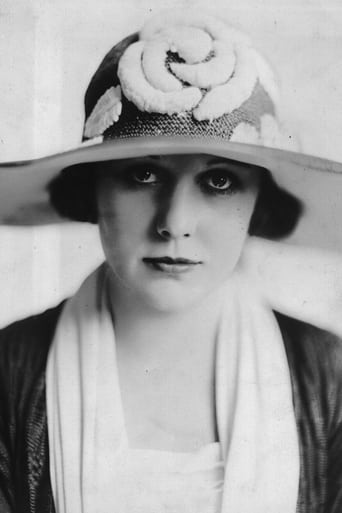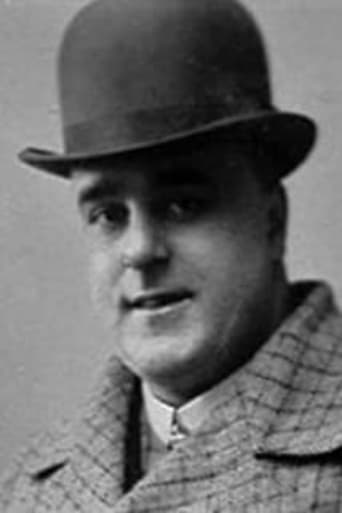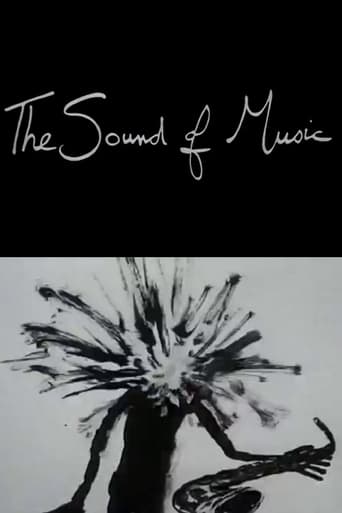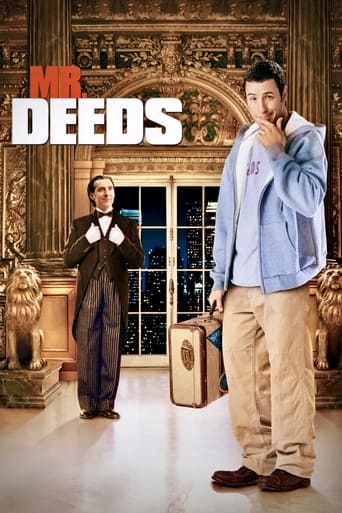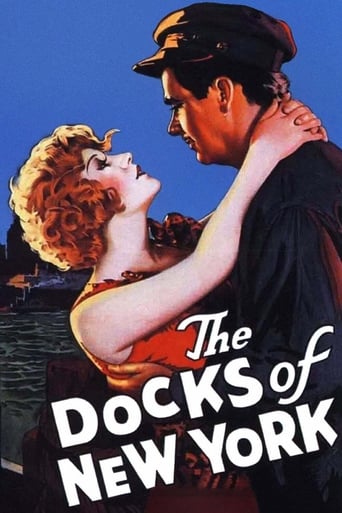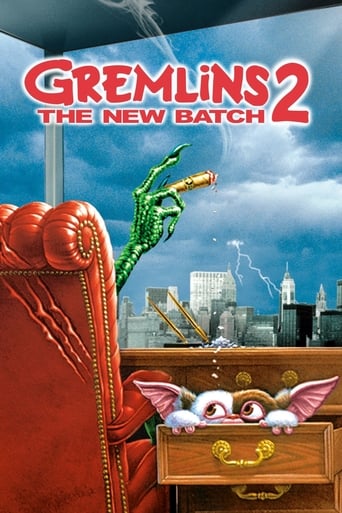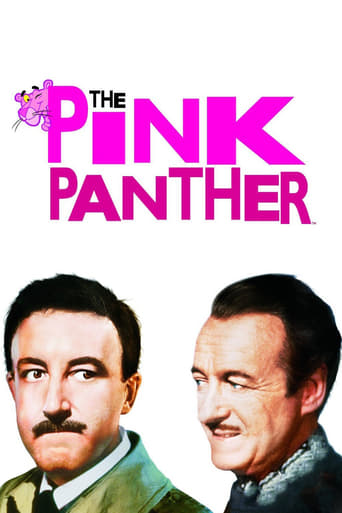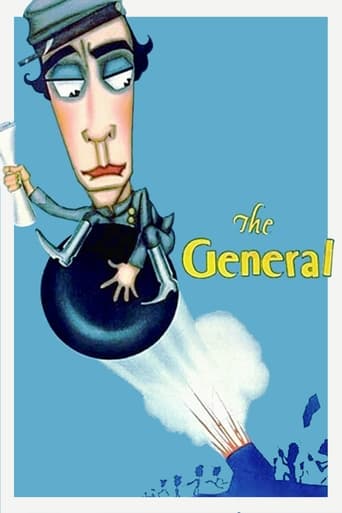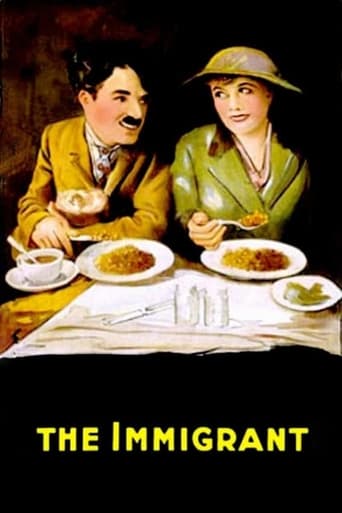
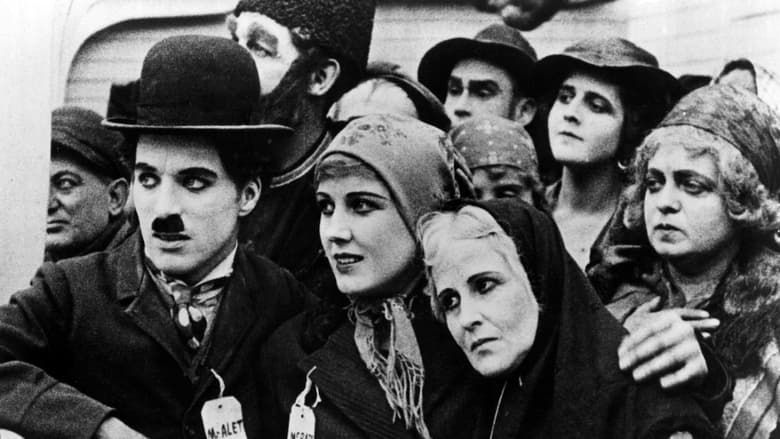
The Immigrant (1917)
An European immigrant endures a challenging voyage only to get into trouble as soon as he arrives in New York.
Watch Trailer
Cast


Similar titles
Reviews
1917. Wow. That's a long time ago ! Can't believe it's more than a century old, now.If you're familiar with Chaplin films, then this can be summarized by saying it's got all the typical charm and ridiculous comedic gymnastics and twists he and only he could bring to the big screen: that ability to keep a plot relevant and alive while focusing on filling up vacant scenes with hilarity and potent entertainment; producing something out of nothing put bluntly; while instilling a very subtle sense of humanity and genuine goodness all at the same time. The entire restaurant scene is exactly that: there's basically nothing going on, or little, and yet it's a scene that is undoubtedly memorable."The tramp" persona was well established at the start already it seems, as Chaplin's classic leitmotiv is the crux of the story here: a man miserable financially but with seemingly bottomless affection and enormous emotional wealth. 7.5./10.
CHARLIE CHAPLIN and EDNA PURVIANCE are excellent together in this early Chaplin short covering his arrival by boat in the USA as "The Tramp" who has barely a penny to his name. The first sequence aboard ship is especially well done, full of the kind of sight gags and slapstick humor involving him and the other passengers that would make him the most famous comedian of his time.Then the tender relationship with equally poor girl Edna Purviance and the second sequence devoted to establishing their relationship during a restaurant meal. Deftly comic moments where timing is everything are contributed by the menacing head waiter ERIC CAMPBELL, who has just thrown out a customer ten cents short of his bill. The fun begins when Charlie realizes whatever money he had from winning at cards has slipped through the hole in his pocket. A cat-and-mouse game with the waiter is played for laughs as Charlie seizes every opportunity to delay paying the bill until he accidentally finds some cash.Chaplin fans can't afford to miss this one. Both halves of the story are played to perfection.
By this point it was fairly clear that Charlie Chaplin's little tramp character was not a canonical, consistent individual embarking on one adventure after the other. He could be a man of any name or background, albeit with the same famous props and persona, even a foreigner coming to American shores for the first time.It was this flexibility of character that kept Chaplin continually inventive, as well as being the key to the breadth of his appeal. The situations Charlie finds himself in here would be familiar to a large proportion of the audience, either from their own lives or the stories of their parents. There is a layer of poignancy in the harsh and frank depiction of the sea crossing, and Chaplin's balancing of comedy and tragedy was never better. Jokes have a bittersweet edge, and sad moments are given a comic – but never disrespectful – twist.Chaplin's precision as a director is utterly beautiful to behold. When the camera is tilting and Charlie is lurching all over the deck, other passengers get up one-by-one to vomit over the side, giving a kind of rising level of madness to the scene, and making the tramp's tottering look even more precarious. Later, when the passengers are having dinner, the rocking of the boat provides plenty of great gags, but look at what happens when Edna Purviance walks in. Not only do we cut to close-ups, losing all the distracting background business, but the rolling subsides to a gentle swaying. The change is smooth enough for us not to notice, but it subliminally colours the moment.The supporting performances are gems as always, but this time special attention goes to Henry Bergman. In the first half, Chaplin ekes a few laughs out of the poor man's rotund stature, with Bergman's rolling across the deck actually being quite an impressive feat. In the second half he gives one of his most fun performances as the flamboyant artist, not being exactly laugh-out-loud funny but creating a bold character all the same.And Chaplin himself is in the middle of it all, now doing his little tramp so effortlessly it looks as if his funny business is just happening, rather than having been thought up. He was now like Jimmy Stewart or Gary Cooper would be years later – always playing the same familiar type who could be adapted to any setting. The added bonus for Chaplin is that, as a silent star, audiences could project any name or voice they wanted upon him. This, then, is also one of the reasons why the little tramp could not have survived into the sound era – but that's another story.
'The Immigrant (1917)' shows Chaplin really finding his feet as a performer and a storyteller. In this 20-minute comedy, the Little Tramp arrives in New York City following a tumultuous transatlantic journey, throughout which the vessel pitched like an amusement park ride. The ever-resourceful Tramp is first seen sprawled over the side of the ship, as though indulging his sea-sickness, but then emerges to reveal himself with a flailing fish in hand. There's also a very touching scene, foreshadowing an unforgettable moment in 'City Lights (1931),' in which Chaplin surrenders his money to a pretty girl (Edna Purviance) in the most humble way he can manage – only to get accused of pickpocketing!Following his arrival in America, the broke and lonely Tramp finds some money on the sidewalk and buys a meal, only to realise – too late – that he's lost the coin. Desperate to avoid being beaten up by the burly waiter and kitchen staff, he tries to obscure the fact that his finances are inadequate. Chaplin's timing, as ever, is exquisitely funny, and even then he had mastered the combination of comedy and sentiment that would make him one of Hollywood's most powerful and respected artists. Edna Purviance is delicate and sympathetic as a fellow immigrant, and the massive Eric Campbell is amusingly intimidating as a café head- waiter who's willing to flay a man for being ten cents short of the bill.


